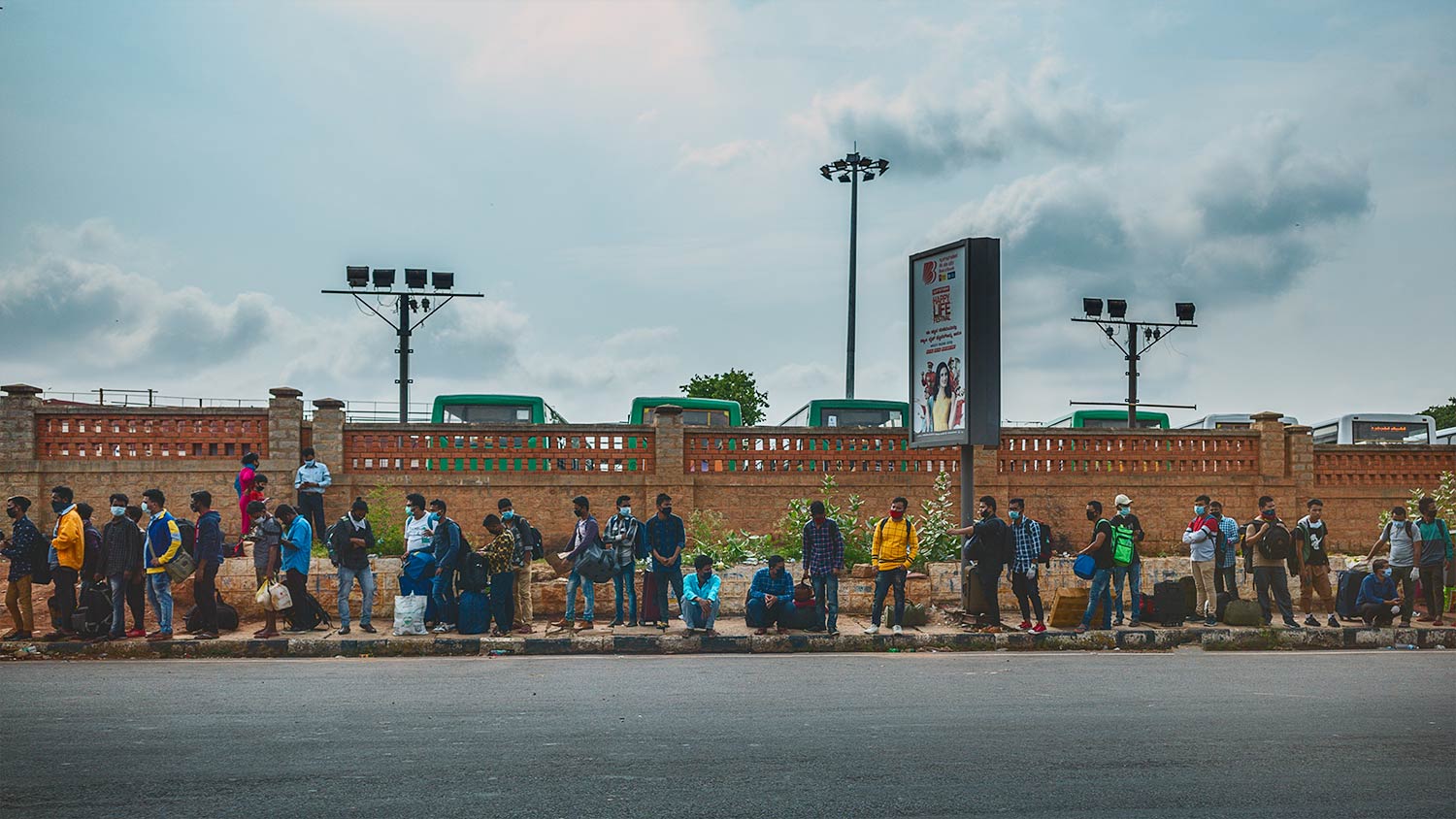Lockdown: Mask to Taste, Damn the Distance
These actions are not going to erase the wrongs being done to people that deserve gratitude, not this pain. There's going to be a price to pay. It'll hurt.

Corona fatigue has set in in my neighbourhood as well, same as across Bangalore, as anywhere else. Half the folks who come out for a walk don't wear a mask, they're in twos and groups, and talking, jesting. There's a civilian order pinned to the corner trees on every street. It asks to wear a mask or pay a ₹2000 fine, but that's only a toothless bark. The same poster asks folks to keep their dog on the leash and to clear its poop. Doggy lapses attract no penalties, however.
The other half of men and women have the mask on, but on the chin, like sloppy beards. A tiny minority deign to cover the mouth with it, but the nostrils they keep free for the fresh air of these days. They wear a frown as well, which turns into a defensive scowl when they come up against somebody wearing their protection right.
I mentioned the lines along the Bangalore Palace Grounds in my last post, of people queuing up for passage to their hometowns in the far North. The sight still greets me as I commute to work every morning, of meek migrant workers standing close, hundreds of them, showing no anger, no anguish, just resigned to keep moving, in slow patient steps, lugging baggage.
It is raining now as I write this, was raining harder an hour ago, and if those migrants are still there, out in the open, with babies among them, God have mercy!
What individual effort can I make? Today is Sunday, and we have a new curb in place: the Sunday curfew is total, except that you can order for takeaway food. On weekdays the lockdown is partial — you can go out for work, and shops are open for business.
Quite a number have contributed money to charities that hand food and other essentials to them. I've followed their example. Large businesses with philanthropic inclinations are sending out thousands of meal packets from their canteens. Student volunteers and other youth are on the ground, doing distribution duties. The local government has commandeered buses and trains. The police show restraint as they regulate entry and exit. But all these won't erase the extent of wrong being done to people that deserve gratitude, not this pain.
There's going to be a price to pay. It will hurt.

At Koramangala, where's located the billionaires' row of Bangalore, I pass every workday a section on Hosur Road where a few migrant families have set up residence on the kerbside. They are husbands and wives, knee-high boys and girls, and babies at the breast. The men are good looking, the women sport pleasant faces. There's even a wizened patriarch who sits on the flagstones with a fixed gaze — there's resurgent traffic before him, but, squatting there, he could well be watching green fields running on to a distant horizon in some Northern countryside
I always look up from whatever I'm doing in the back seat and look out when we approach their makeshift tents. They're out of their tents at the time, spilling on the pavement, some snoozing on it, others up and about: women at gossip; a child getting ready for school (complete with uniform), her mother braiding her hair; a mother feeding her child off a steel plate, smiling fondly as the offspring mouths the morsel off her hand. They're oblivious to the world around them — like they are ensconced in the privacy of a proper home.
They disappeared when the lockdown was clamped. And, ten days later, once I began to commute — as an essential services person — I noticed that their tents had gone as well. Now, ten weeks later, a week from the end of the fourth phase of the lockdown, the families have returned. Their tents are tentatively set up. They're on the kerb as before, the old man as well. (None wear the mask, of course.)
Among all the sights my cantankerous city throws at me, this one intrigues me most. Of dispossessed people who come across as middle-class folks: they bear the assurance of the housed and clothed; there's no hint of bitterness on their faces, only inexplicable contentment; they're an island unto themselves in the world of want and worry flitting around them; they exhibit no discernible worry. Their kids prance on the pavement with rough-made improvised toys, laughing, crying, no different than any well-provided kid.
My driver always races past this section, wanting to beat the stoplights ahead. It's not a place to stop and alight for anything. But I'm curious regarding the attitude of these people that live there. Among several questions that come to mind regarding them, one is foremost: How did they get that girl to school? (The one I told you about, whose mother is braiding her hair.) That's a girl whose future I so want to hear foretold.

